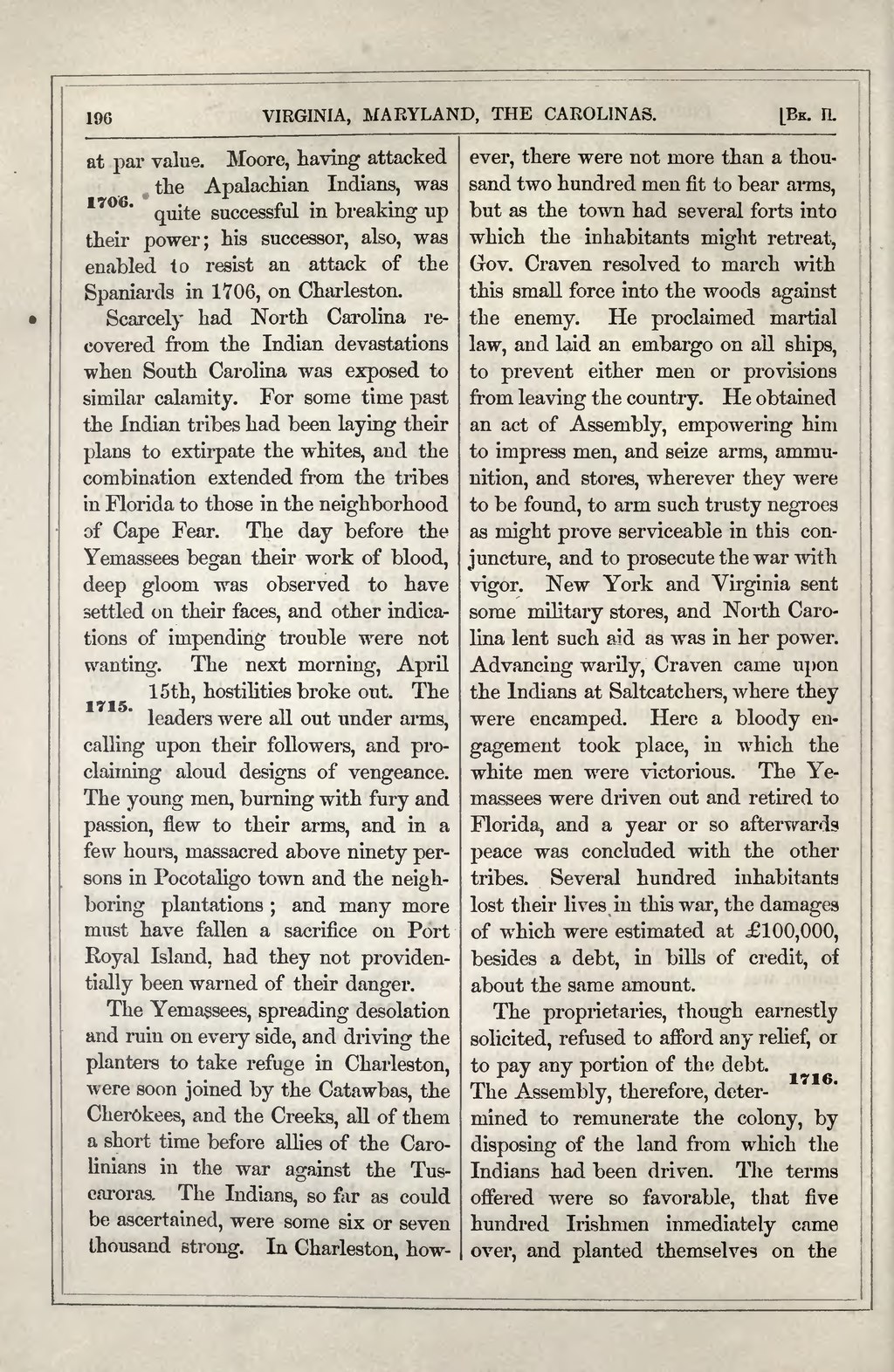at par value. Moore, having attacked the Apalachian Indians, was quite successful in breaking up their power; his successor, also, was enabled to resist an attack of the Spaniards in 1706, on Charleston.
Scarcely had North Carolina recovered from the Indian devastations when South Carolina was exposed to similar calamity. For some time past the Indian tribes had been laying their plans to extirpate the whites, and the combination extended from the tribes in Florida to those in the neighborhood of Cape Fear. The day before the Yemassees began their work of blood, deep gloom was observed to have settled on their faces, and other indications of impending trouble were not wanting. The next morning, April 15th, hostilities broke out. The leaders were all out under arms, calling upon their followers, and proclaiming aloud designs of vengeance. The young men, burning with fury and passion, new to their arms, and in a few hours, massacred above ninety persons in Pocotaligo town and the neighboring plantations; and many more must have fallen a sacrifice on Port Royal Island, had they not providentially been warned of their danger.
The Yemassees, spreading desolation and ruin on every side, and driving the planters to take refuge in Charleston, were soon joined by the Catawbas, the Cherokees, and the Creeks, all of them a short time before allies of the Carolinians in the war against the Tuscaroras. The Indians, so far as could be ascertained, were some six or seven thousand strong. In Charleston, however, there were not more than a thousand two hundred men fit to bear arms, but as the town had several forts into which the inhabitants might retreat, Gov. Craven resolved to march with this small force into the woods against the enemy. He proclaimed martial law, and laid an embargo on all ships, to prevent either men or provisions from leaving the country. He obtained an act of Assembly, empowering him to impress men, and seize arms, ammunition, and stores, wherever they were to be found, to arm such trusty negroes as might prove serviceable in this conjuncture, and to prosecute the war with vigor. New York and Virginia sent some military stores, and North Carolina lent such aid as was in her power. Advancing warily, Craven came upon the Indians at Saltcatchers, where they were encamped. Here a bloody engagement took place, in which the white men were victorious. The Yemassees were driven out and retired to Florida, and a year or so afterwards peace was concluded with the other tribes. Several hundred inhabitants lost their lives in this war, the damages of which were estimated at £100,000, besides a debt, in bills of credit, of about the same amount.
The proprietaries, though earnestly solicited, refused to afford any relief, or to pay any portion of the debt. The Assembly, therefore, determined to remunerate the colony, by disposing of the land from which the Indians had been driven. The terms offered were so favorable, that five hundred Irishmen inmediately came over, and planted themselves on the
